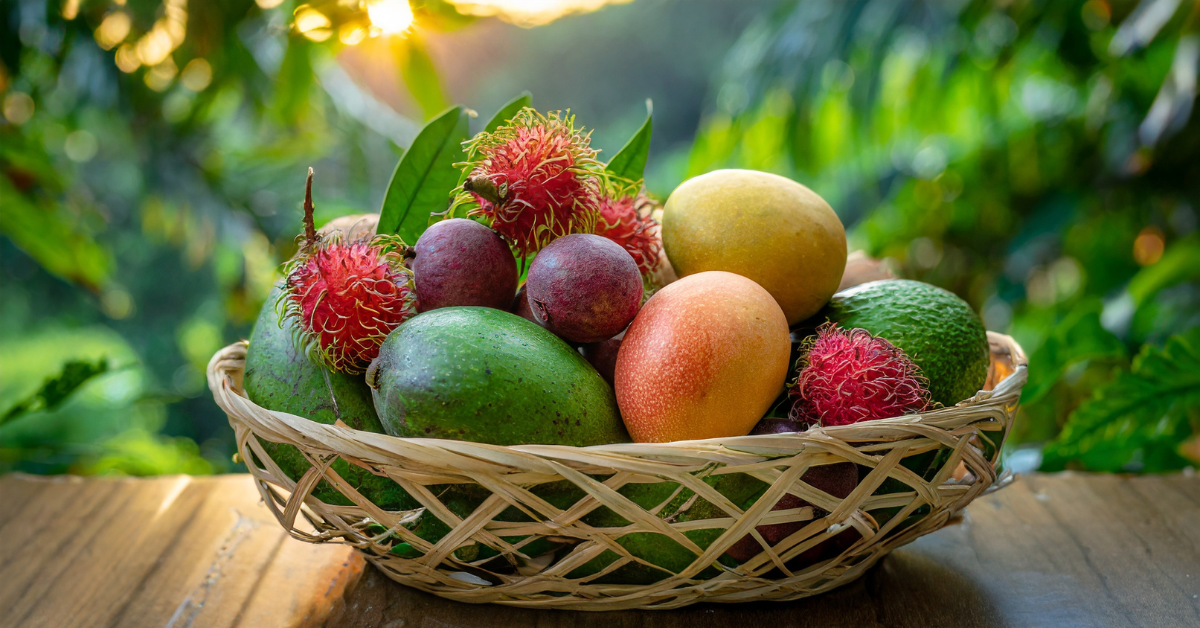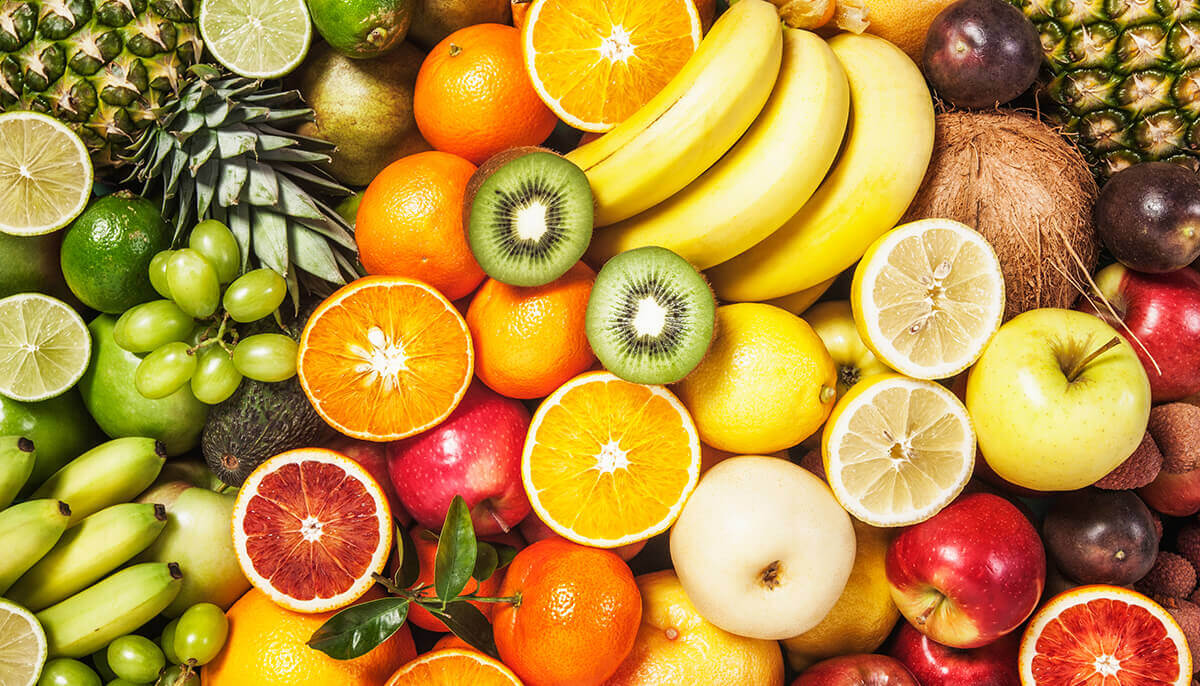Fruits play a vital role in a balanced diet, offering a rich source of vitamins, minerals, fiber, and antioxidants. They not only provide essential nutrients but also contribute to the prevention of a variety of health conditions such as heart disease, cancer, and diabetes. This article delves deeply into 20 nutritious fruits, exploring their health benefits and nutritional content in detail.
1. Apples
Apples are a popular fruit known for their health benefits and versatility. Each apple provides a good dose of fiber, which helps regulate blood sugar levels and aids in digestion. Apples are also rich in vitamin C, which is crucial for immune function, and various antioxidants, including quercetin, which has anti-inflammatory properties. The soluble fiber found in apples, pectin, has been linked to lower levels of LDL cholesterol, making apples heart-healthy. Regular consumption of apples has been associated with reduced risk of several chronic diseases, including type 2 diabetes, heart disease, and cancer.
2. Bananas
Bananas are highly nutritious, offering significant doses of potassium, which is essential for maintaining healthy blood pressure and heart function. They also provide a quick source of energy, thanks to their high carbohydrate content, making them a favorite among athletes. Additionally, bananas contain vitamin B6, which is important for brain development and function. The fiber in bananas supports digestive health and helps regulate blood sugar levels after meals.
3. Oranges
Oranges are best known for their high vitamin C content, essential for skin health and immune function. They also provide potassium, which helps control blood pressure, and flavonoids like hesperidin, which may lower cholesterol and have heart-protective effects. Oranges are a low-calorie fruit that can aid in weight management and provide a boost of fibrous content, which promotes satiety and facilitates regular bowel movements.
4. Blueberries
Blueberries are celebrated for their antioxidant properties, primarily due to high levels of anthocyanins, which give them their blue color. These antioxidants help neutralize harmful free radicals, potentially reducing the risk of chronic conditions such as heart disease, diabetes, and Alzheimer's. Blueberries are also a good source of vitamin C, vitamin K, and manganese, supporting skin health and bone strength.
5. Strawberries
Strawberries are a rich source of vitamin C, manganese, folate, and potassium, along with high levels of antioxidants. They are particularly beneficial for heart health, as studies have shown they can help reduce harmful oxidation of LDL cholesterol, a key risk factor for heart disease. The high fiber content in strawberries also helps with digestion and maintaining blood sugar levels.
6. Avocados
Avocados differ from most other fruits because they are high in healthy fats, particularly monounsaturated fats, which help reduce inflammation and bad cholesterol levels. They are also loaded with fiber, potassium, and magnesium, all of which benefit heart health. Avocados contribute to skin health and enhance the absorption of fat-soluble vitamins and other nutrients.
7. Cherries
Cherries are packed with nutrients and offer health benefits primarily through their high levels of antioxidants, including anthocyanins and cyanidin. These compounds have potent anti-inflammatory effects, which can alleviate symptoms of arthritis and gout. Cherries are also rich in melatonin, which helps regulate sleep patterns, making them beneficial for those who suffer from sleep disorders.
8. Papayas
Papayas are an excellent source of vitamin C, vitamin A, and folate, contributing to immune function and fetal health during pregnancy. They contain an enzyme called papain that aids digestion by breaking down protein fibers. Additionally, the antioxidants in papayas, such as carotenoids, can reduce oxidative stress and lower the risk of chronic diseases.
9. Mangoes
Mangoes are not only delicious but also a powerhouse of nutrients. They are rich in vitamins A, C, and E, which are crucial for immune function and skin health. Mangoes also contain folate, vitamin K, and potassium. Their high levels of antioxidants, such as mangiferin, have been studied for their effectiveness in reducing inflammation and the risk of chronic diseases like heart disease.
10. Grapes
Grapes, especially dark-colored varieties, are known for their high levels of antioxidants, including resveratrol, which has been linked to heart health and longevity. Grapes are also a good source of vitamins C and K, which help in bone health and blood clotting. Regular grape consumption can help regulate blood sugar levels and provide anti-inflammatory benefits.
11. Pineapple
Pineapple is famous for its bromelain content, an enzyme that aids in digestion and has anti-inflammatory and anti-cancer properties. It is also a rich source of vitamin C and manganese, crucial for antioxidant defenses and energy production. The high vitamin C content in pineapples supports immune health and can boost the body's ability to fight infections and heal wounds. Additionally, bromelain has been shown to reduce the severity of arthritis symptoms and improve recovery from infections and injuries.
12. Watermelon
Watermelon is rich in vitamins A and C, which are essential for skin health and immune function. It's also one of the best sources of lycopene, an antioxidant linked to heart health and cancer prevention, particularly prostate cancer. Watermelon's high water content makes it hydrating and refreshing, while its natural sugars provide quick energy with minimal calories, making it ideal for weight management.
13. Kiwi
Kiwi is a small fruit packed with a wealth of nutrients, including exceptionally high levels of vitamin C, vitamin K, vitamin E, and potassium. These nutrients help in maintaining heart health, blood pressure, and skin integrity. Additionally, kiwi contains a significant amount of fiber, which promotes digestive health and can aid in weight management by providing a feeling of fullness.
14. Pomegranates
Pomegranates are rich in punicalagins and punicic acid, antioxidants that provide three times the antioxidant activity of green tea. These antioxidants help reduce inflammation, lower blood pressure, and combat some cancer types, particularly prostate cancer. Pomegranates also improve cholesterol profiles and protect LDL cholesterol from oxidative damage, further benefiting heart health.
15. Lemons
Lemons are high in vitamin C but also provide potassium and vitamin B6, which are essential for energy production and immune system function. The soluble fiber in lemons, particularly pectin, has been linked to improved heart health by lowering cholesterol levels. Lemons also have strong antibacterial properties and can help improve skin quality due to their detoxifying effects.
16. Peaches
Peaches offer a rich supply of nutrients such as vitamins A and C, potassium, and fiber. These contribute to healthy skin, eyes, and digestion. Peaches also contain antioxidants that help reduce the risk of chronic diseases by combating oxidative stress. Additionally, the fiber in peaches supports digestive health and helps maintain steady blood sugar levels.
17. Nectarines
Nectarines, closely related to peaches, are packed with nutrients including vitamins A, C, and E, potassium, and fiber. They support skin health due to their high vitamin A content and help in digestion because of their fiber content. Nectarines also provide antioxidants that protect against aging and chronic diseases like cancer.
18. Plums
Plums are rich in vitamins C and K, fiber, and minerals such as potassium, which aid in maintaining healthy blood circulation and reducing the risk of stroke. They also contain antioxidants that help in reducing inflammation and protecting the cells from damage. Dried plums, or prunes, are particularly known for their ability to alleviate constipation due to their high sorbitol and dietary fiber content.
19. Blackberries
Blackberries are notable for their high vitamin C content, fiber, and vitamin K, which are essential for immune function, maintaining healthy skin, and improving bone density. They also possess high levels of antioxidants like anthocyanins, which provide neuroprotective benefits, which can improve brain health and prevent age-related memory loss.
20. Raspberries
Raspberries are extremely rich in dietary fiber, vitamins C and K, and manganese. Their high fiber content helps manage blood sugar levels and aids in digestion, while antioxidants and anti-inflammatory compounds in raspberries may reduce the risk of chronic disease. They are also low in calories but high in nutrients, making them an excellent option for those looking to manage their weight.






0 Comments